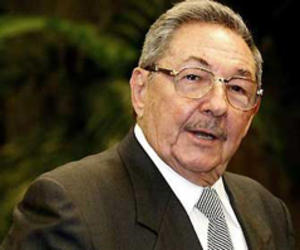Cuba acknowledges delay in layoff plan
- Submitted by: manso
- Politics and Government
- 03 / 01 / 2011

Cuban President Raul Castro says layoff plan behind schedule, says caution is necessary. ap. Paul Haven, Associated Press, On Monday February 28, 2011, 9:29 pm EST. HAVANA (AP) -- President Raul Castro acknowledged on Monday what has been clear in the streets of Cuba for some weeks, that a key government plan to lay off half a million state workers by the end of March is well behind schedule and won't be completed on time.
The Cuban leader told a joint meeting of his Cabinet and Council of State that it was important to proceed carefully with the layoffs, part of a major shakeup of the island's socialist economy that also includes allowing thousands more people to go into business for themselves.
He did not set a new target date for the layoffs, saying only that the changes were part of a five-year plan, according to an official dispatch read out on the evening news Monday.
"A job of this magnitude which will effect so many citizens in one way or another cannot be marked by inflexible timetables," the dispatch read. "How quickly it moves forward will depend on our capacity to create the legal and organizational conditions to guarantee success."
The newscast said Castro told his ministers the government would "leave nobody behind" as it overhauled the economy, something he has repeated often while also warning that the country's future hangs in the balance if serious changes are not enacted quickly.
Government and union workers have spoken of delays before, but Castro's message to the island's leadership was the first time the government has said outright that a Mar. 31 goal for completing the job was out the window, and that no clear timetable would be set.
The Associated Press reported two weeks ago that the layoffs had stalled in the face of deep resistance from administrators.
"This is a very, very sensitive process," said a member of a Havana workers' commission, one of thousands across the island that were to decide which jobs to eliminate.
The AP report, which was based on interviews with dozens of Cubans in the capital and elsewhere, found that almost nobody had been fired.
The government announced the layoffs -- which would have amounted to one-tenth of the island's work force -- back in September, and said they had to be completed by the end of March, weeks ahead of a crucial Communist Party Congress at which the island's future is to be mapped out.
Eliminating that many jobs would be politically treacherous in any country, but particularly one that has projected itself since Fidel Castro's 1959 revolution as seeking to build an egalitarian utopia. Cubans make just $20 a month, but in return are granted generous subsidies including free education and health care, nearly free housing and utilities, and a monthly basket of basic foods.
The other major half of the economic overhaul appears to be moving ahead more successfully. As of early January, some 75,000 Cubans had signed up for licenses that allow them to work in the private sector, rent out rooms and even hire employees.
Still, there are concerns over whether the tax rate the government has set is too high, and whether the list of allowable jobs is big enough to stimulate growth nationwide.
Cubans have been discussing the changes in workhouse meetings for months ahead of the Party Congress. The newscast cited Economy Minister Marino Murillo as saying that some 127,000 such meetings had taken place, and that 7 million of the country's 11 million citizens had taken part, submitting hundreds of thousands of suggestions.
Source: http://finance.yahoo.com/news/
Comments